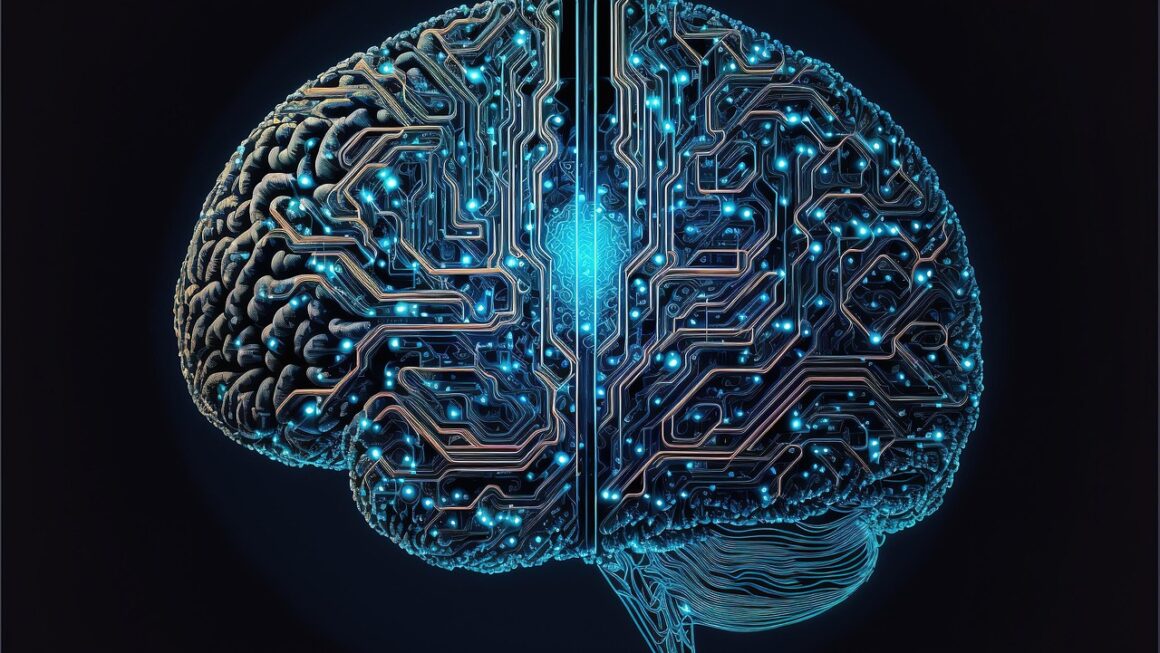Artificial intelligence (AI) is rapidly transforming industries, and at the heart of this revolution lies specialized hardware: AI chips. These chips are designed to handle the complex computations required for machine learning and deep learning, offering significant performance improvements compared to traditional CPUs. This blog post will delve into the world of AI chips, exploring their types, benefits, applications, and the future they hold.
What are AI Chips?
Definition and Core Functionality
AI chips are microprocessors specifically designed and optimized for artificial intelligence tasks, particularly machine learning. Unlike general-purpose CPUs, AI chips excel at the parallel processing and matrix multiplication operations that are fundamental to training and running AI models. This specialized architecture allows them to perform AI tasks much faster and more efficiently.
For more details, visit Wikipedia.
- Key Difference: General-purpose CPUs handle a variety of tasks, while AI chips focus solely on AI-related computations.
- Core Functionality: Primarily, AI chips perform matrix multiplication, convolutions, and other operations essential for deep learning.
- Benefit: Significantly reduced processing time for AI workloads.
Types of AI Chips
The AI chip landscape is diverse, with various architectures designed for different applications. Here are some common types:
- GPUs (Graphics Processing Units): Originally designed for graphics processing, GPUs have become popular for AI due to their parallel processing capabilities. NVIDIA and AMD are leading manufacturers.
Example: NVIDIA Tesla GPUs are widely used in data centers for training complex AI models.
- TPUs (Tensor Processing Units): Developed by Google specifically for TensorFlow, TPUs are optimized for matrix operations and large-scale deep learning.
Example: Google uses TPUs extensively in its own AI services like Google Translate and search.
- FPGAs (Field-Programmable Gate Arrays): FPGAs are reconfigurable chips that can be customized to implement specific AI algorithms.
Example: Intel’s FPGA-based AI accelerators are used in applications requiring flexibility and real-time processing.
- ASICs (Application-Specific Integrated Circuits): ASICs are custom-designed chips built for a specific AI task, offering the highest performance and energy efficiency.
Example: AI chip companies like Graphcore design ASICs for accelerating deep learning workloads.
- Neuromorphic Chips: Inspired by the human brain, neuromorphic chips use spiking neural networks to process information in a more energy-efficient way.
* Example: Intel’s Loihi chip is a neuromorphic chip used for research in brain-inspired computing.
Benefits of Using AI Chips
Enhanced Performance
AI chips offer significant performance improvements compared to traditional CPUs for AI workloads.
- Faster Training: AI chips can dramatically reduce the time it takes to train complex AI models, from weeks to days or even hours.
- Inference Acceleration: They can also speed up inference, the process of using a trained model to make predictions, enabling real-time AI applications.
- Parallel Processing: The ability to perform many calculations simultaneously is key.
Energy Efficiency
AI chips are designed to perform AI tasks with lower power consumption.
- Reduced Power Consumption: Lower energy usage translates to lower operating costs and a smaller environmental footprint.
- Edge Computing: Energy efficiency is particularly important for edge computing applications, where devices operate on battery power or have limited power resources.
Scalability
AI chips can be scaled up to handle increasingly complex AI workloads.
- Data Centers: Large data centers can deploy racks of AI chips to train and run massive AI models.
- Cloud Computing: Cloud providers offer AI chip-powered virtual machines and services to enable scalable AI solutions.
Real-time Processing
AI chips enable real-time AI applications that require low latency.
- Autonomous Vehicles: AI chips are essential for processing sensor data and making real-time decisions in self-driving cars.
- Robotics: They enable robots to perceive their environment and react quickly to changing conditions.
- Gaming: Improved AI processing allows for more realistic and responsive in-game AI agents.
Applications of AI Chips
Autonomous Vehicles
AI chips are the brains behind self-driving cars, enabling them to perceive their surroundings, make decisions, and navigate safely.
- Sensor Fusion: Processing data from cameras, LiDAR, and radar sensors.
- Object Detection: Identifying and tracking objects such as pedestrians, vehicles, and traffic signs.
- Path Planning: Generating optimal routes and controlling the vehicle’s movements.
- Examples: NVIDIA DRIVE PX platform, Tesla’s Full Self-Driving (FSD) chip.
Healthcare
AI chips are used in various healthcare applications, from medical imaging to drug discovery.
- Medical Imaging: Analyzing X-rays, MRIs, and CT scans to detect diseases and anomalies.
- Drug Discovery: Accelerating the process of identifying and developing new drugs.
- Personalized Medicine: Tailoring treatment plans based on individual patient data.
- Examples: AI-powered diagnostic tools, drug repurposing platforms.
Finance
AI chips are used in finance for fraud detection, algorithmic trading, and risk management.
- Fraud Detection: Identifying fraudulent transactions and preventing financial losses.
- Algorithmic Trading: Executing trades automatically based on market data and pre-defined strategies.
- Risk Management: Assessing and managing financial risks.
- Examples: High-frequency trading systems, AI-powered credit scoring.
Retail
AI chips are used in retail for personalized recommendations, inventory management, and customer service.
- Personalized Recommendations: Providing customers with product recommendations based on their past purchases and browsing history.
- Inventory Management: Optimizing inventory levels and reducing stockouts.
- Customer Service: Providing automated customer support through chatbots and virtual assistants.
- Examples: AI-powered recommendation engines, automated checkout systems.
Edge Computing
AI chips are crucial for bringing AI capabilities to edge devices such as smartphones, cameras, and IoT sensors.
- Real-time Analysis: Performing AI analysis locally on the device, without sending data to the cloud.
- Reduced Latency: Enabling faster response times for applications that require real-time processing.
- Privacy: Protecting user data by processing it locally on the device.
- Examples: Smartphone cameras with AI-powered image processing, smart home devices with voice recognition.
The Future of AI Chips
Emerging Trends
The AI chip industry is constantly evolving, with new technologies and architectures emerging.
- Neuromorphic Computing: Brain-inspired chips that mimic the way the human brain processes information.
- Quantum Computing: Using quantum mechanics to solve complex AI problems that are intractable for classical computers.
- 3D Chip Stacking: Increasing chip density and performance by stacking multiple layers of silicon.
- Analog AI: Utilizing analog circuits for AI computation, offering potential advantages in speed and energy efficiency.
Challenges and Opportunities
The AI chip industry faces several challenges, including:
- High Development Costs: Designing and manufacturing AI chips is expensive and requires specialized expertise.
- Software Compatibility: Ensuring that AI chips are compatible with existing software frameworks and tools.
- Data Security: Protecting AI models and data from cyberattacks.
However, the AI chip industry also presents significant opportunities:
- Growing Demand: The demand for AI chips is expected to grow rapidly as AI becomes more prevalent in various industries.
- Innovation: There is significant potential for innovation in AI chip architectures and technologies.
- Market Growth: New players and startups are entering the AI chip market, driving competition and innovation.
Conclusion
AI chips are the engines driving the artificial intelligence revolution. Their specialized architectures, enhanced performance, and energy efficiency are enabling a wide range of AI applications across various industries. As AI continues to evolve, AI chips will play an increasingly important role in shaping the future. From autonomous vehicles to personalized medicine, AI chips are empowering us to solve complex problems and create new possibilities. Investing in and understanding this technology is crucial for businesses and individuals alike who wish to remain competitive and innovative in the rapidly evolving world of artificial intelligence.
Read our previous article: Zk Rollups: Scaling Privacy, Redefining Ethereum




